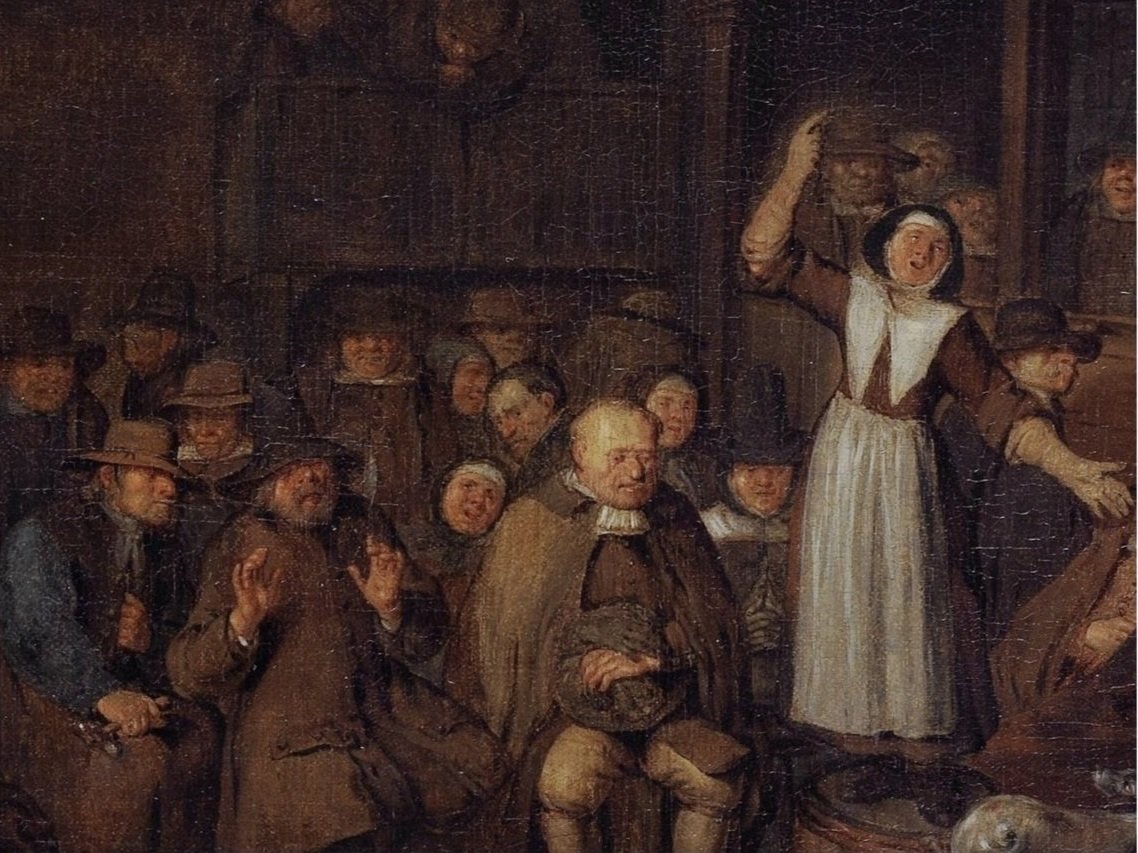School Field Trips
To schedule your trip, please contact our education office at bownehouseeducation@gmail.com
General Information:
Bowne House Educators teach students at all grade levels about the early history of Flushing, Queens and the lives and contributions of nine generations of family members who lived in the historic Bowne House, built in 1661.
We offer a range of grade appropriate history lessons & cover a variety of topics, including family patriarch John Bowne's notable defense of religious tolerance and liberty of conscience, as well as his family members’ participation in the Abolition movement and the Underground Railroad.
Field trips to the Bowne House include a guided tour of the home by our team of educators. Students will have the opportunity to explore both the interior and exterior of the site, while engaging with objects, artifacts, documents, and images.
We are happy to work with instructors in advance to adapt our lessons to complement the curriculum being studied by individual classes. Please see below for detailed lesson descriptions & relevant NYC social studies curriculums.
Program Pricing:
$220 PER CLASS for payment in cash/check (pay to the order of “Bowne House Historical Society”)
OR $230 PER CLASS for payment via credit card. Payment is accepted at the museum on the day of the field trip.
Cancellation Fee:
There is a cancellation fee of $50 in cash/check or $55 via credit card for field trips cancelled less than 48 hours prior to reservation.
Class Size:
Maximum class size: 35 students. For information regarding larger groups and number of chaperones, please contact us at bownehouseeducation@gmail.com.
Hours of Availability:
Wednesday: 9am-12pm | Thursday: 10am-1pm | Friday: 10am-1pm
Duration:
All field trip programs are one hour long.
How to Reserve a Field Trip:
To schedule your field trip and for all questions/inquiries, please contact our education office at bownehouseeducation@gmail.com.
Lunch Note:
We do not have a designated lunch area on-site. Visitors are prohibited from bringing food or drink inside the museum. If food or drink is required for medical reasons, we ask that these items be left with a museum attendant while students are inside the historic rooms. If weather permits, students are welcome to eat their lunch on our outdoor property after the tour.
Special Considerations:
Due to the fragile nature of the home and its furnishings, it is important that Paraprofessionals stay with their assigned students. This is for the safety of all students.
A Sensory Learning Social Narrative is available for instructors to distribute to students prior to their visit. Please contact us at bownehouseeducation@gmail.com for a copy of the narrative and for further guidelines.
Program Descriptions
Bowne House currently offers the following programs:
Early American Life at the Bowne House
The History of Religious Freedom at the Bowne House
The History of Anti-Slavery Activism & the Underground Railroad in Flushing, NY
Early American Life at Bowne House
Created for young learners, our Early American Life program focuses on the daily life of Bowne House and Queens residents in the 17th and 18th centuries. Presented as an interactive journey back in time, topics include the New Netherland landscape, household work, food preparation, gardening, and farming.
Curriculum Relevance:
Kindergarten, Unit 3, Geography, People, and the Environment
Grade 1, Unit 2, Families, Now and Long Ago
Grade 2, Unit 2, New York City Over Time
Grade 4, Unit 3, Colonial and Revolutionary Periods
Grade 5, Unit 3, Comparative Case Study of Western Hemisphere Cultures
The History of Religious Freedom at Bowne House
During this lesson, students will learn about John Bowne’s fight for religious tolerance in 17th-century New Netherland. We will follow Bowne through his arrest for holding Quaker meetings in his home, his trial before Peter Stuyvesant, and his arguments in favor of liberty of conscience. Our program ends with a reflection on the lasting impact of religious freedom in the United States.
Curriculum Relevance:
Grade 4, Unit 4, Freedom and the New Nation: Federal, State, and Local Government
Grade 5, Unit 2, European Exploration and Colonization
Grade 7, Unit 1, Native Americans, Early Encounters, and Colonial Development
Grade 11, Unit 1, Forming a Union: Colonial and Constitutional Foundations
Grade 12, Unit 1, Foundations of American Democracy
The History of Anti-Slavery Activism & the Underground Railroad
Discover how residents of Flushing, including Bowne-Parsons family members, participated in abolition efforts in the late 18th and 19th centuries. Topics include the history of enslavement in New Netherland and the evolution of anti-slavery sentiments within the family. Learn about the Manumission Society and the African Free School, as well as the Bowne-Parsons involvement in the Underground Railroad. Students will engage with historical documents and primary sources to gain a better understanding of the anti-slavery movements of pre-Civil War New York.
Curriculum Relevance:
Grade 4, Unit 4, Freedom and the New Nation: Federal, State, and Local Government
Grade 7, Unit 5, A Nation Divided
Grade 11, Unit 2, Expansion, Nationalism, & Sectionalism (1800-1865)
Grade 12, Unit 3, Civic Participation and Public Policy




